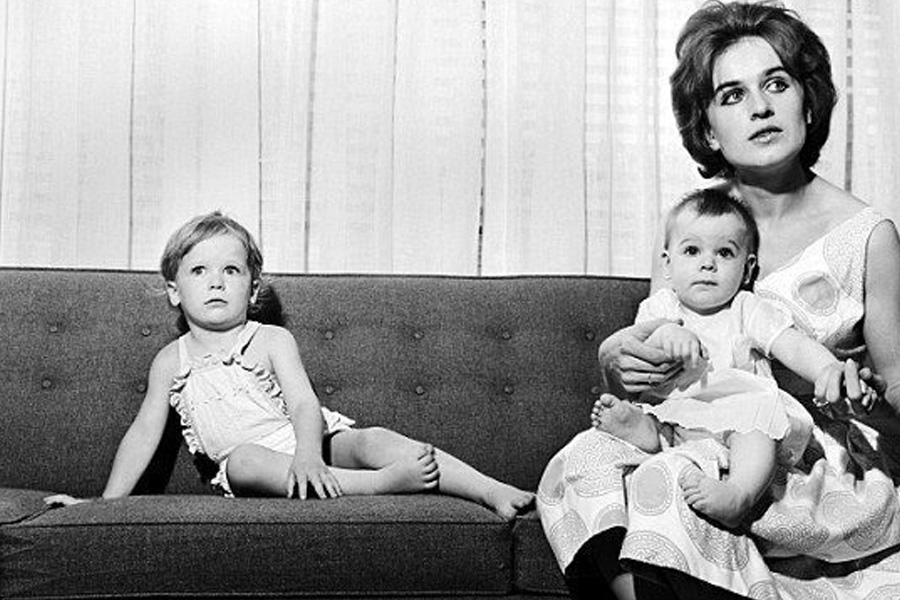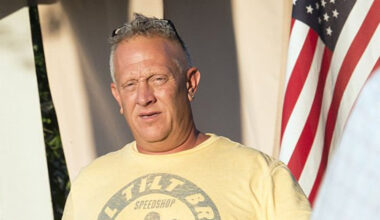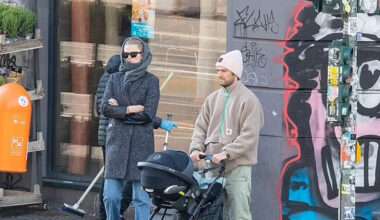Basic Information
| Field | Details |
|---|---|
| Full Name | June Lee Oswald Porter (commonly known as June Oswald) |
| Date of Birth | February 15, 1962 |
| Place of Birth | Minsk, Soviet Union (now Belarus) |
| Nationality | American |
| Parents | Lee Harvey Oswald (father), Marina Oswald Porter (mother) |
| Siblings | Audrey Marina Rachel Oswald Porter (sister), Mark Porter (half-brother) |
| Stepfather | Kenneth Jess Porter (married Marina in 1965; died October 8, 2024) |
| Known For | Eldest daughter of Lee Harvey Oswald; low-profile life in the Dallas area |
| Occupation | Pharmacist; retail and management roles in the Dallas region |
| Education | College-educated; studied at Harvard in 1984 (short-term program) |
| Children | Two sons (born circa 1989 and 1992) |
| Marital Status | Divorced in 1992 |
| Residence | Dallas–Fort Worth area, Texas |
| Public Stance on JFK Case | Skeptical of her father’s guilt; advocates release of remaining records |
| Public Profile | Reclusive; occasional interviews in 1993 and 1995; minimal social media footprint |
Early life and the shockwave of 1963
June Lee Oswald was born into geopolitics and upheaval. She arrived in Minsk in 1962, where her father—an ex–U.S. Marine who had defected to the Soviet Union—had married her mother, a young pharmacology student. By June of that year, the small family returned to the United States, settling in Fort Worth, Texas, to start anew. Nothing about the next 18 months would be ordinary.
On November 22, 1963, the Kennedy assassination turned the Oswald name into a historical fault line. June was 21 months old when her father was arrested and, two days later, killed on live television. These events became the permanent weather of her life—an unchosen forecast that followed her into schools, workplaces, and relationships. Even as a child, she learned to navigate whispers and stares, a quiet survivor of a national trauma that refused to fade.
In 1965, stability arrived with her mother’s marriage to Kenneth Porter. June entered school as “June Porter,” a simple surname change that became a shield. She grew up in the Dallas suburbs, recalling a “pretty happy” childhood punctured by periodic intrusions—from prank calls to the annual media drumbeat each November. She came to refer to her father by his first name, “Lee,” reserving the word “father” for the man who raised her: Kenneth Porter.
Family ties: strength, strain, and solidarity
The family’s inner life carried the kind of contradictions only history produces. Marina was protective, sometimes fiercely so, especially around the assassination’s anniversaries. Kenneth was steady and private, the quiet scaffolding of a reassembled home. June and her younger sister Rachel shared a strong bond, even as they argued over the legacy they never asked to bear. Later in life, both daughters voiced skepticism about their father’s guilt, aligning over time with Marina’s doubts and her calls for transparency.
Despite waves of outside pressure, no credible reports suggest that June’s intimate relationships were exploitative or predatory. Instead, what compromised her youth were invasions of privacy—unexpected knocks, unlisted calls, and strangers’ curiosities that seeped into everyday life. The family’s response was a pact for privacy, and June kept it.
Professional life and financial footing
June built a career that echoed her mother’s early path in pharmacology. By the late 1980s and 1990s, she was working as a pharmacist in the Dallas area, moving into managerial roles where leadership and discretion mattered. In one memorable episode from the mid-1990s, when her identity became known at work, she addressed staff directly, a pragmatic calm shading a deeply personal disclosure.
Public records and reminiscences point to modest, steady financial stability. In the immediate aftermath of 1963, donations to the family were significant for the era (around $70,000), and sales of certain personal items (like Lee’s diary) brought in additional funds. Yet June’s adult life shows a preference for normalcy over notoriety. She reportedly declined lucrative media offers, including multimillion-dollar interviews, in favor of keeping her children and career out of the limelight. Suburban life, work, and parenting took precedence over any public stage.
Public stance and presence
June’s public presence has been intentionally sparse. She surfaced at key moments: a 1993 morning show appearance, a 1995 magazine profile, both times arguing that the record of the Kennedy assassination remained incomplete and urging further declassification. Her position is measured: she doubts her father acted alone, questions whether he was guilty at all, and advocates the release of the remaining files “before it’s too late.”
Since then, she has retreated again into privacy. By 2025, mentions of her in the news tend to be retrospective or tied to a family milestone—most recently, the passing of Kenneth Porter in October 2024, which prompted renewed reflection on the family’s complicated history. On social media, she is effectively absent.
Key family members at a glance
| Name | Relationship | Key Details |
|---|---|---|
| Lee Harvey Oswald | Father | Born 1939, New Orleans; Marine veteran and Soviet defector; accused in the 1963 assassination of President Kennedy; killed by Jack Ruby two days later. |
| Marina Oswald Porter | Mother | Born 1941, USSR; immigrated to the U.S. in 1962; later expressed doubts about Lee’s guilt; became a U.S. citizen in 1989; lives reclusively in Texas. |
| Kenneth Jess Porter | Stepfather | Electronics worker; married Marina on June 1, 1965; steady presence who helped shield the family; died October 8, 2024. |
| Audrey Marina Rachel Oswald Porter | Sister | Born October 20, 1963; has shared June’s skepticism about their father’s guilt; lives privately in the Dallas area. |
| Mark Porter | Half-brother | Born 1966; part of the blended Porter household; lives privately, with few public details. |
Selected timeline
| Date | Event |
|---|---|
| February 15, 1962 | Birth in Minsk, Soviet Union |
| June 1962 | Family immigrates to the United States; settles in Fort Worth, Texas |
| October 20, 1963 | Sister Rachel is born in Dallas |
| November 22, 1963 | Assassination of President Kennedy; Lee Harvey Oswald arrested |
| November 24, 1963 | Lee Harvey Oswald killed by Jack Ruby |
| June 1, 1965 | Marina marries Kenneth Porter in Fate, Texas; June begins using “Porter” at school |
| 1984 | Studies at Harvard; settles a privacy lawsuit out of court |
| Late 1980s–1990s | Works as a pharmacist in the Dallas area; moves into management |
| 1992 | Divorce; continues raising two sons |
| June 1993 | Appears on national television, urging the release of assassination records |
| April 1995 | Profiled in a major magazine; reiterates skepticism and calls for declassification |
| October 8, 2024 | Stepfather Kenneth Porter dies at age 86 |
| 2025 | Maintains private life; occasional retrospective media mentions tied to family legacy |
A life lived between shadow and sunlight
June’s story is not really about the assassination. It is about what happens after the cameras leave—a family’s stubborn insistence on normalcy under a sky forever marked by the past. She learned early how to navigate two worlds: the public legend that others projected onto her and the private reality she built through work, parenting, and deliberately small circles.
There are telling details that color her character. She has chosen ordinary institutions—schools, pharmacies, cul-de-sacs—over the glare of cable lights. She has referred to her biological father by his first name, reserving “father” for the man who raised her. She has argued, calmly and consistently, that history owes the people it haunts the fullest possible record. She has lived for decades with an infamous last name and still succeeded in being known, to most who’ve met her, as June.
That quiet defiance is its own kind of legacy. It resists spectacle. It values the privacy of her children, the dignity of her mother’s late-life doubts, the memory of a stepfather whose steady hand helped their family weather storms. In a nation where conspiracy can become currency, June has declined to cash in. She chose a pharmacist’s counter over a lectern; the measured cadence of a manager over the roar of a studio audience. In that choice lies the through line of her life.
FAQ
Who is June Lee Oswald?
She is the eldest daughter of Lee Harvey Oswald and Marina Oswald Porter, born in 1962 and raised largely in the Dallas area after 1963.
What does she do for a living?
She trained as a pharmacist and has worked in retail and management roles in the Dallas region.
What is her stance on the JFK assassination?
She is skeptical of her father’s guilt and has repeatedly called for the release of all remaining records.
Is she active on social media?
No; her public footprint is minimal, and she avoids social platforms.
Where does she live now?
She maintains a private life in the Dallas–Fort Worth area.
Does she have children?
Yes, two sons born around 1989 and 1992.
Has she appeared in the media?
Rarely; notably in a 1993 television interview and a 1995 profile, both focused on transparency and family privacy.
What role did her stepfather, Kenneth Porter, play?
He provided stability after 1963, helped shield the family, and remained a central figure until his death in 2024.



